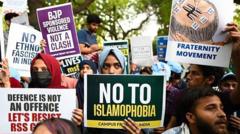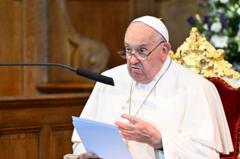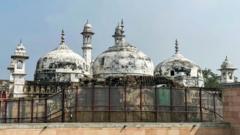Amid accusations of adulterated ghee used in a revered temple’s offerings, the case exemplifies how dietary preferences fuel divides in a diverse nation.
The Politics of Food: How Culinary Choices Shape India's Divisions

The Politics of Food: How Culinary Choices Shape India's Divisions
Recent allegations around a sacred temple sweet spotlight the interplay of food, religion, and politics in India.
In the southern Indian state of Andhra Pradesh, a political controversy has surfaced surrounding the sacred offering of laddu at the renowned Tirupati temple, the wealthiest Hindu worship site globally. The temple, known for its generous distribution of the sweet, reportedly spends around a million dollars monthly on ghee—the clarified butter essential for laddu preparation.
The turmoil ignited when N. Chandrababu Naidu, the new Hindu chief minister, accused his Christian predecessor of compromising the temple's sanctity by allowing imported ghee mixed with animal fats for laddu production. This harsh critique raised concerns for the temple's substantial vegetarian devotee base, illustrating how food can become a contentious symbol in India's socio-political landscape.
This event reflects a broader trend in India, where culinary practices increasingly intertwine with politics, religion, and identity. The nation has seen heightened sensitivities surrounding food, particularly as Hindu nationalism gains traction under Prime Minister Narendra Modi. Many Indian states outlaw cow slaughter, viewing cows as sacred to Hindus, which has led to brutal consequences for those accused of consuming or transporting beef, predominantly targeting the Muslim community.
Food's historical significance in India is profound; the Indian Rebellion of 1857 was propelled by an outcry over British military practices involving beef and pork fats, which outraged both Hindu and Muslim soldiers alike. Such past events underscore the enduring power of food as a symbol of cultural identity and exclusion.
As political rhetoric continues to incorporate vegetarianism and cow protection, it is essential to recognize how dietary preferences, religious beliefs, and caste identities intersect to shape contemporary India’s complex social fabric. The Tirupati laddu controversy is just one illustration of this ongoing narrative, where culinary choices are increasingly scrutinized and politicized, echoing larger debates about identity, tradition, and power in a rapidly shifting society.



















